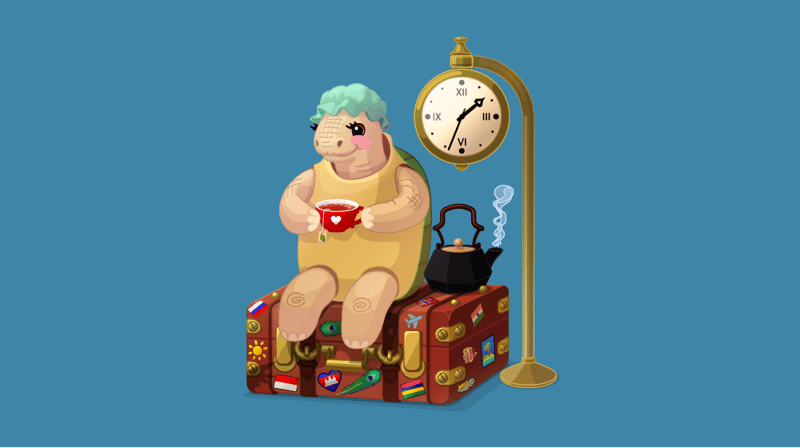“We want you to be happy.”
It’s a common phrase used in student affairs, but it rarely seems to be put into daily practice. Beyond reading self-development books and attending trainings, cultivating your personal satisfaction can feel like a job in itself.
With everything student affairs professionals have going on, balancing the happiness of their students and staff — while maintaining their own — can feel like a monumental accomplishment. It has been said time and time again that “you can’t pour from an empty cup.” But sometimes we fail to acknowledge that our plates are just too full and our cups are empty.
Many of us get into the habit of normalizing stress as a proponent of joy and as a way of defining our personal and professional value. So many of us spend time creating a routine that feeds into the habits that can make our lives that happier, but how many of us take a moment to check-in with ourselves to (re-)evaluate how we can navigate being a happy professional in a very taxing field?
1. Manifest your happiness
Many professionals believe that the more they do, the happier they will be. This feeds into the idea that professional success is the true source of happiness. But rarely do we know what would make us happy outside of what we do for work.
Manifesting happiness in our lives means being honest with ourselves about what we may have always wanted, where we currently are, and where we want to be. This also means reckoning with ourselves to learn if all these things match up. We rarely give ourselves permission to think about what happiness looks and feels like for us. This might be the perfect time for you to reconnect with your emotions and ask yourself what drives you and brings you joy.
2. Tap into your passions
To find happiness, your actions should be aligned with a profound passion; with something that makes you happy.
For some, this might be as simple as adding more color to their office. For others, this might be a bit more difficult — being the lead singer of a rock band might not align with your duties as a student affairs professional.
However:
- Does playing your favorite band in the background while you work help you focus?
- Can you help plan an event where upcoming bands perform on your campus?
- Can you form a band with your colleagues?
These are all ways to bridge your needs and your wants.
3. Be easy on yourself
Criticising yourself about things you haven’t done rarely helps you move forward. Setbacks, mistakes, and failures are just a part of life. Admitting this to yourself and giving yourself space to be human is the greatest form of self-compassion that we can practice.

The next time you fumble (either inside and outside of your position), breathe. Use reassuring words that will not only help calm you down but will allow you to see yourself less as a product and more as a person.
4. Look for teachable moments
As student affairs professionals, we help students become better versions of themselves. This is often done by unpacking some of our students’ not-so-great moments on campus and reminding them that their academic journey isn’t tied to what they do, but what they truly learn.
We must be willing to follow the same advice.
Much of what we do as leaders is connected to things we learn and how they shape our journeys. Often, because we wear so many hats, we miss the opportunity to invest in our own teachable moments. Our long-term well-being is connected to the “A-Ha” moments we have while we help our students navigate their own. While teachable moments won’t always feel good, they will definitely help you on your path.
5. Disconnect from the clutter
The world can be a very loud place, especially in your office. Add in smartphones, laptops, iPads, conference calls, committee meetings, and emergency response, and it can be extremely difficult to hear yourself.
Making time for yourself to think without the noise of the world can be difficult, but it is necessary. Give yourself permission to turn the phone off or uninstall the social media apps. There are multiple ways that you can disconnect while on your search for altruistic happiness. Sometimes, it can be as simple as saying “no.”
6. Find moments to rest
When someone comments they are tired in a staff meeting, we fall back on advice telling that person to rest or get more sleep. But sometimes being tired isn’t connected to how much sleep we do or don’t get, but to the lack of intentionality behind what we do.
To find true joy, we must pay attention to the moments in our lives where we can say without a doubt that we are highly satisfied. Those are the moments in which we are truly able to rest. Rest doesn’t necessarily mean doing nothing, but rather, doing what helps you recharge. That could be getting coffee with a friend, going for a walk in nature, reading a book, or cooking a meal with loved ones.
Resting is about reconnecting with ourselves and others.
7. Connect with your feelings
Ignoring your emotional health will lead you down the path to burnout 10 out of 10 times. We often overlook the long-term effects that our daily stressors have on our happiness and don’t give ourselves time to process what we’re encountering.
While it might be difficult to put into words what you are feeling, it is important to acknowledge that the feelings are there. Happiness, as a practice, is more than just finding the pleasure in life. It is “feeling your feelings” and recognizing the pain that comes with ignoring how you feel.
8. Forgive on your own terms
Finding happiness can often be a challenging as both people and professionals because of the pain we often carry from those who might have wronged us. We can be so unaware of how our past experiences will affect the ways we interact with the people in our lives and how we work.
When looking for ways to center your happiness in the process of forgiving, moving forward doesn’t mean forgetting the anger and resentment you have experienced in your journey.
Center the notion that forgiveness is a gift that you can give to yourself as it can help calm the emotions you may carry. Think about the moments where someone might have had a hard time forgiving you and expound on ways that you can preserve what you have done to be happy.
9. Seek community healing
Beyond creating financial reports and writing learning outcomes, the hardest thing that we can work to do as professionals is heal. Healing can often be complicated because while we may recognize the issues that keep us from being happy, we can’t come up with a plan to get well.
This is where community healing comes in. Through community healing, we not only find support and trust, but we are given a chance to be authentic and heard in a way that we may not usually have access to.
Some institutions have begun practicing this, providing space for:
- Mental health networking socials
- Campus walking groups
- Identity specific spaces that focus on specific weekly topics
Community healing allows for compassion, recognition, and empathy. The hardest part of finding happiness is speaking from a place of truth without fear of judgment. Community healing allows this.
10. Reflect on where you’ve been and where you are going
The trek to happiness is about reflecting on who you’ve always wanted to be. Recall the moments when you have seen your students most happy and think about how you can cultivate that experience for yourself.
While “finding” happiness can be complicated, being your own happiness guide helps you grow. Remind yourself to trust the process and remember that happiness isn’t just a place you want to visit, but a place where you always want to reside.
How have you found happiness? Let us know on Twitter @themoderncampus and @DoctorJonPaul.





